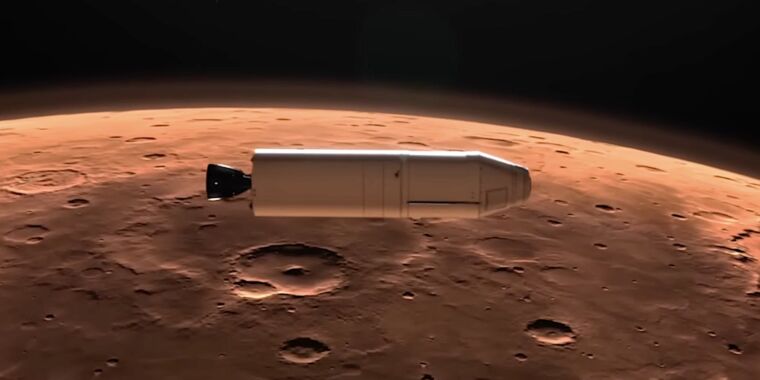NASA Awards Contracts to Seven Companies for Mars Sample Return Studies
NASA announced Friday that it will award contracts to seven companies, including SpaceX and Blue Origin, to study how to transport rock samples from Mars more cheaply back to Earth. The space agency put out a call to industry in April to propose ideas on how to return the Mars rocks to Earth for less than $11 billion and before 2040, the cost and schedule for NASA’s existing plan for Mars Sample Return (MSR). A NASA spokesperson told Ars the agency received 48 responses to the solicitation and selected seven companies to conduct more detailed studies.
Contract Details
Each company will receive up to $1.5 million for their 90-day studies. Five of the companies chosen by NASA are among the agency’s roster of large contractors, and their inclusion in the study contracts is no surprise. Two other winners are smaller businesses.
Mars Sample Return is the highest priority for NASA’s planetary science division. The Perseverance rover currently on Mars is gathering several dozen specimens of rock powder, soil, and Martian air in cigar-shaped titanium tubes for eventual return to Earth. “Mars Sample Return will be one of the most complex missions NASA has undertaken, and it is critical that we carry it out more quickly, with less risk, and at a lower cost,” said Bill Nelson, NASA’s administrator.
Key Players
Lockheed Martin, the only company that has built a spacecraft to successfully land on Mars, will perform “rapid mission design studies for Mars Sample Return,” according to NASA. Northrop Grumman also won a contract for its proposal: “High TRL (Technology Readiness Level) MAV (Mars Ascent Vehicle) Propulsion Trades and Concept Design for MSR Rapid Mission Design.” These two companies were partners in developing the solid-fueled Mars Ascent Vehicle for NASA’s existing Mars Sample Return mission.
Aerojet Rocketdyne will study a high-performance liquid-fueled Mars Ascent Vehicle using mature propulsion technologies to improve program affordability and schedule. SpaceX, known for its long-term Mars vision, will study “Enabling Mars Sample Return with Starship.” Blue Origin, Jeff Bezos’ space company, will also receive funding for a study titled “Leveraging Artemis for Mars Sample Return.”
Two smaller businesses, Quantum Space and Whittinghill Aerospace, will also conduct studies for NASA. Quantum, a space infrastructure company, will perform the “Quantum Anchor Leg Mars Sample Return Study.” Whittinghill Aerospace, based in California, will perform a rapid design study for a single-stage Mars Ascent Vehicle.
Future Plans
Boeing, a notable absence from the list of contract winners, has pushed the use of NASA’s super-expensive Space Launch System for the Mars Sample Return mission. Alongside the seven industry contracts, NASA centers, JPL, and APL at Johns Hopkins University will also produce studies on how to complete the Mars Sample Return mission more affordably. JPL is the lead center in charge of managing NASA’s existing concept for Mars Sample Return in partnership with the European Space Agency.
NASA will use the results of these 10 studies to craft a new approach for Mars Sample Return later this year. The architecture NASA ultimately chooses will likely mix and match various elements from industry, NASA centers, and the European Space Agency, which remains a committed partner on Mars Sample Return with the Earth Return Orbiter.
Image/Photo credit: source url





